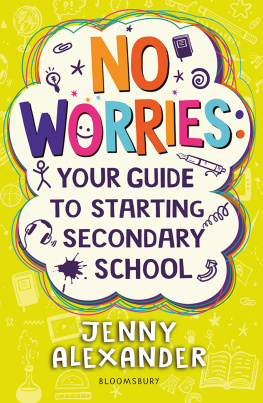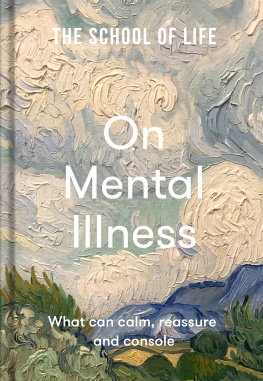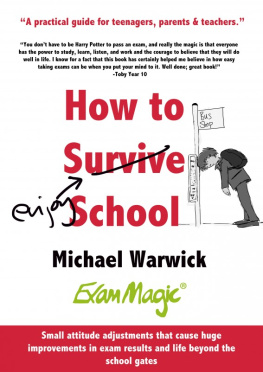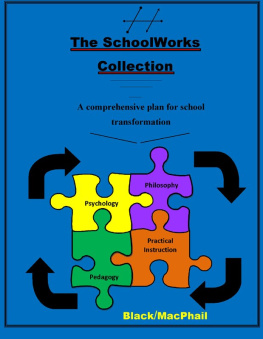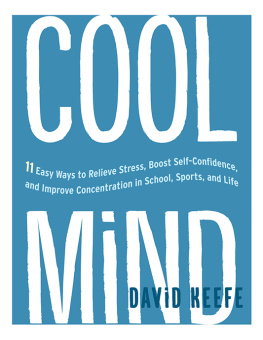CONTENTS
- SECTION 1
: UNDERSTANDING YOUR BRAIN - SECTION 2
: STUDYING - SECTION 3
: PREPARATION AND TIME MANAGEMENT - SECTION 4
: TESTS AND EXAMS - SECTION 5
: THE NEXT CHAPTER - SECTION 6
: THE CONTRACT
INTRODUCTION
ASK ANY TEENAGER to list the causes of anxiety, stress and general mental anguish in their life, the chances are academic anxiety will appear near the top. I know this because its literally my job to ask teenagers to list causes of anxiety, stress and general mental anguish in their lives.
For more than a decade Ive been visiting an average of three schools and colleges every week throughout the UK and beyond, delivering talks and conducting research on mental health, body image and gender equality. I work with 14-18-year-olds and use the information they give me to get a better understanding of what hinders, motivates and interests them. In turn, I use this information to create presentations and workshops (together with experts in psychology and neuroscience), as well as campaigning for changes which will better support the needs and interests of under-25s.

My job regularly takes me to Parliament, where I have terrific fun telling off politicians, and to TV studios, where I explain to commentators who think theyre being terribly clever when they use terms like generation snowflake why theyre definitely not. I like to think of myself as having created a platform for young people, many of whom cannot vote and are therefore more likely to have their needs and interests ignored.
To do my job, I have to listen - and I mean *really* listen and be prepared to have my assumptions challenged. Itd be far easier to be one of those people who says I remember what it was like to be a teenager and create my classes and campaigns on the basis of my recollections, but to do so would be to ignore two fundamental factors:
The first is that our brain has a tendency towards rose-tinted nostalgia. Thats why adults often describe their teenage years as the best of their life (they almost definitely werent). Theyre cherry-picking the aspects of teenage life they wish they had now (no mortgage/taxes/wrinkles) and forgetting everything else (hormones/homework/heartbreak).
The second is that our frames of reference are radically different. Its absolutely true what my mum told me when I was about 13 for example, that the things I was teased for at school (being swotty and having big lips) are some of the aspects of myself I appreciate most now, as an adult. Mum also predicted I would bump into the first person who broke my heart one day and think Eurgh. What did I ever see in them? Both of those premonitions came to pass, but hearing that wasnt the slightest comfort to me at the time. In fact, to my teenage ears it sounded a lot like my mum belittling my problems.
Similarly, when a family friend said to me - just days after Id got the (excellent) A level results I had chucked every ounce of effort for the past two years into obtaining - after the first couple of days at uni, no one will ask or care what you got in your A levels. I felt the overwhelming urge to scream in his face forever (I didnt, youll be relieved to learn).
When it comes to the role that assessments, exams and grades will play in your life, theres no point in my telling you what I know, with the benefit of hindsight. I can only work with what young people tell me theyre going through, right now. And having had countless conversations with hundreds of teenagers, what I have gleaned is this:

YOUD RATHER ACE EVERY BIT OF SCHOOLWORK AND LOSE YOUR MIND THAN NURTURE YOUR MENTAL WELLBEING AND GET A LOWER GRADE.

IS IT A BINARY CHOICE, THOUGH?
If, like the people Ive described above, youre of the staunch opinion that grades are more important than your wellbeing, Im not here to challenge that. I will, however, ask you why you think you have to choose?
Where has the idea that academic learning and mental health are at odds with one another come from? I suspect the answer is, in part, the media. TV and radio shows are forever pitting stereotypical trads (people who think education was better when pupils were seen and not heard, did their homework using a quill by candlelight and were thrashed with canes if they didnt hand it in on time) and progs (people who think schools should do away with reading altogether and pupils should instead go and sit under a tree to write a song about the beauty of a blade of grass, at the end of which everyone will get a medal for participating) for entertainment value.
Similarly, schools often have wellbeing weeks, as though having a relationship with your body and mind is an endeavour you can choose to opt out of. It would be a great deal more convenient, I am sure, if we had the facility to open a door in our foreheads, scoop out our brains and plop them into a jar to sit in a classroom somewhere, absorbing everything we needed to know while we got on with the other aspects of life. Unfortunately, at the time of writing, this is a feat beyond the scope of human endeavour.
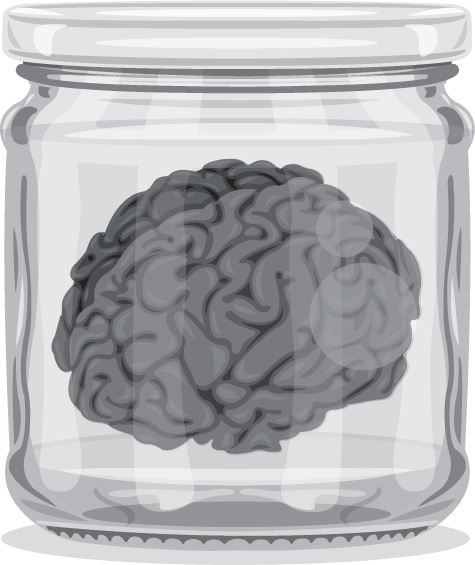
Everything is connected. Your physical fitness affects your mental health and the wellbeing of your mind impacts your ability to learn. Perhaps most excitingly, academic learning has been shown in numerous studies to make us happier and healthier.
Furthermore, there is a sweet spot , consisting of activities proven to make you a more effective learner and which also, handily, improve your mental fitness (see to find out what I mean by this). Imagine it like a Venn diagram, with academic attainment on the left and mental health on the right.
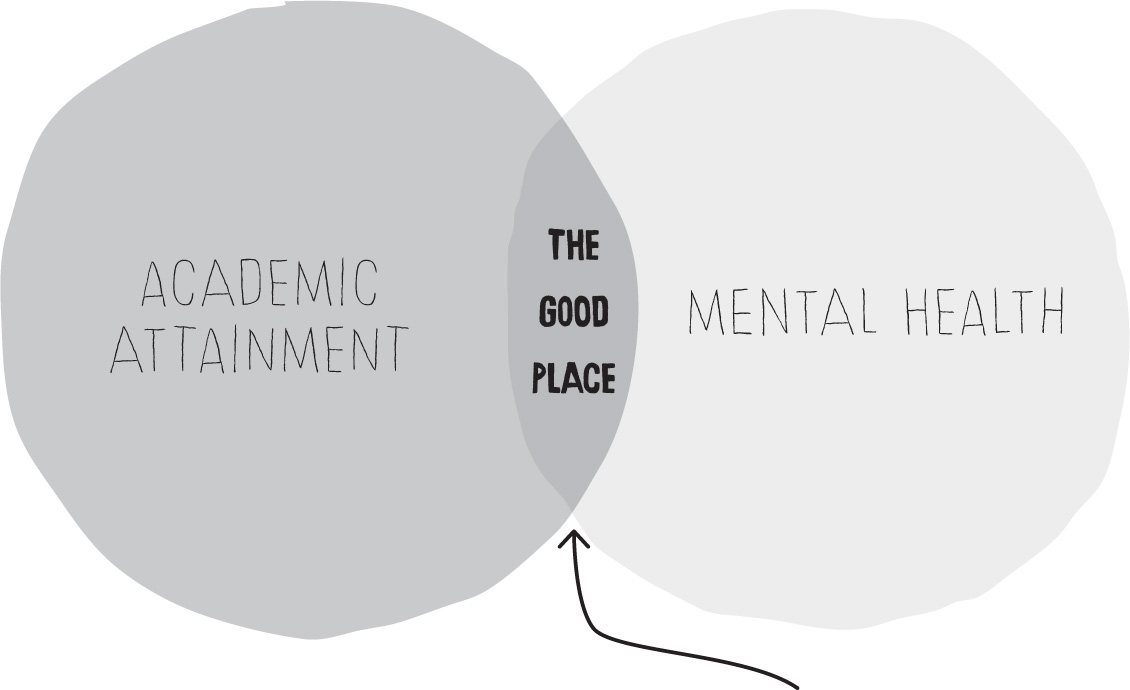
THIS BOOK is an exploration of the point at which the worlds of academia and wellbeing meet. Its aim is to make you more likely to achieve the highest grade of which you are capable, as well as emerging with your mental health and self-esteem intact even improved. Its going to allow you to understand your brain better, as well as give you practical guidance and exercises to help you through your schooldays, and all the challenges, assessments and exams that these years bring. Here are a few things to bear in mind, before we begin:
WHAT IS MENTAL HEALTH?
Lots of people use the terms mental health and mental illness interchangeably. I often hear mental health is on the increase in the UK or my sister had mental health, once.
These statements dont make sense. To understand why, substitute the word mental for physical - in just the same way as everyone has an objective overall level of physical health, absolutely everyone has a level of mental health.




